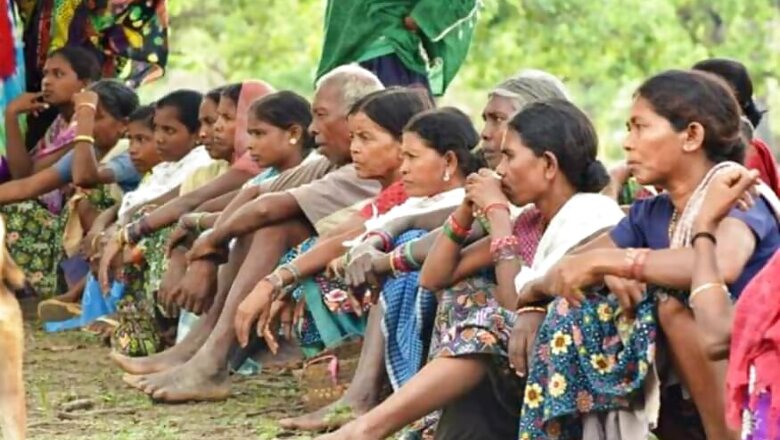
views
New Delhi: Citing an age-old “close relationship between forest dwelling communities and protection of the environment”, the Centre on Wednesday moved the Supreme Court, seeking a stay on possible eviction of more than 10 lakh forest dwellers and tribals in various states.
The ministry of tribal affairs filed an application in the court, pleading for the modification of a judicial order of February 13 that may result into forcible eviction of tribals and forest-dwelling households across 16 states.
Solicitor General Tushar Mehta mentioned the application before a bench headed by Justice Arun Mishra, which agreed to grant a hearing on Thursday.
The ministry, in its application, has claimed that the top court should suspend its order and ask the state governments to submit details of rejection of claims by forest dwelling Scheduled Tribes (FDSTs) and other traditional forest dwellers (OTFDs).
It pointed out that the court issued its order of eviction on February 13 based on the data adduced by the state governments regarding rejection of the claims by the forest dwellers.
"However, the said data did not provide the details of rejection," stated the plea, adding it has come to light that the claims of FDSTs and OTFDs were rejected in a summary manner where no due opportunity is provided to the claimants.
"It is uncertain whether the data furnished by the state governments accurately indicates whether the rejection orders were passed after observance of due process of law; compliance with principles of natural justice and whether appeal mechanisms have been properly exhausted. Without such information and compliance with the mandate of law in letter and spirit, the eviction of such tribal, would amount to serious miscarriage of Justice," said the ministry.
It maintained that the first dwellers and tribals are extremely poor and illiterate people and not well informed of their rights and procedure under the Act.
"They live in remote and inaccessible areas of the forest. It is difficult for them to substantiate their claims before the competent authorities," stated the plea, adding the Forest Rights Act is a beneficial piece of legislation and deserves to be construed liberally in favour of the forest dwellers.
The ministry has therefore requested the bench to consider modifying its order of February 13 and direct the state governments to file detailed affidavits regarding the procedure followed and details of the rejection of claims
"And till then the eviction of tribal may be withheld. The eviction of tribal, without such information would cause serious prejudice to such tribal who have been residing in forests for generation," pleaded the application.
The court order on February 13 had come on a petition, demanding that all those whose claims over traditional forestlands are rejected under the law should be evicted by state governments as a consequence.
In January 2016, the court had directed the state governments to furnish data regarding number of claims rejected and the action taken after the rejection of claim.
Subsequently, reports submitted by the state governments showed that more than 11 lakh claims were rejected, and the bench ordered the authorities to act in accordance with the law after rejection of their claims. The statistics, however, did not clarify whether each claim connote one person or a member of the family or something other.

















Comments
0 comment